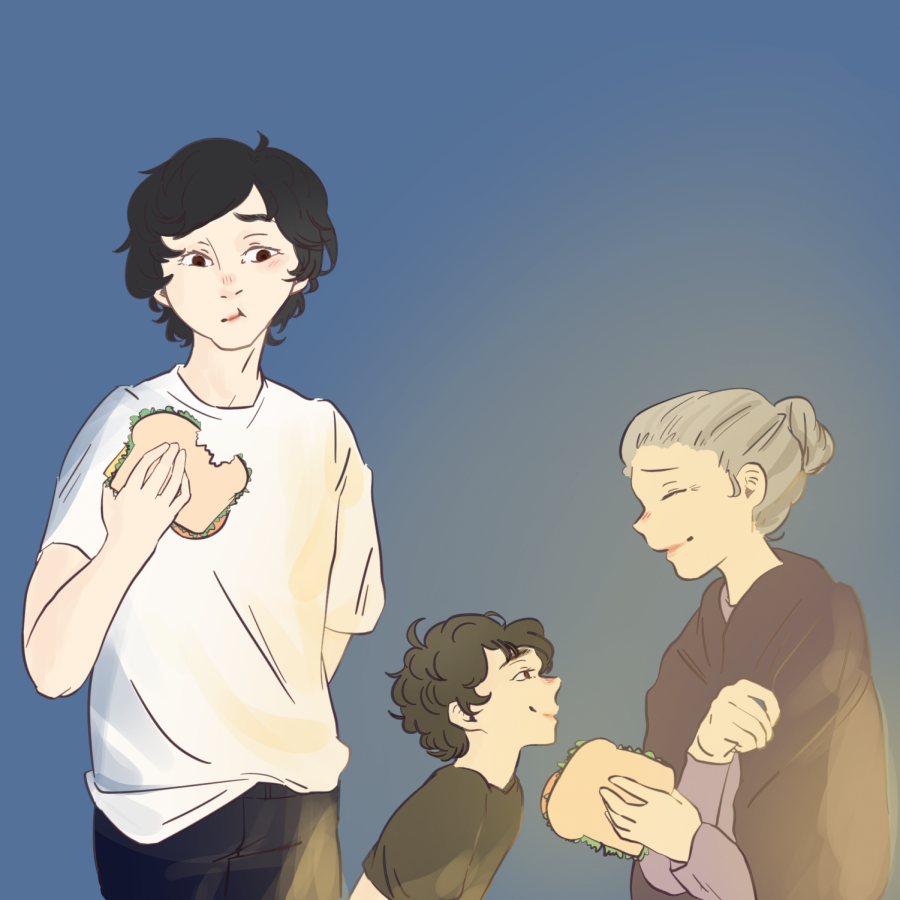The Nostalgic Feeling of Deja Vu
December 14, 2018
Have you ever walked into a room and thought, “Wait, I’ve been here before,” even though you really haven’t? That feeling is called déjà vu and it’s very common—as much as 70% of the population has experienced this phenomenon, but it’s most prevalent among the 15-25 age group. How did this unique feeling of familiarity get its name, and is it a trick our mind plays on us, or is it a real neurological anomaly?
The first recorded “case” of déjà vu occurred in ancient Greece and was documented by later writers like Ovid and St. Augustine. Charles Darwin was later able to better describe the unique feeling as he nailed the emotion in the phrase: “We have all some experience of a feeling, that comes over us occasionally, of what we are saying and doing having been said and done before. in a remote time — of our having been surrounded, dim ages ago, by the same faces, objects, and circumstances — of our knowing perfectly what will be said next, as if we suddenly remembered it.” The actual term “déjà vu” was coined by F.L Arnaud, a French neurologist, during a meeting of the Societe medico-psychologique (or in other words, the meeting of psychologists, neurologists, and other specialists in the fields). In fact, the phrase déjà vu means “already seen” in French.
Through various studies, it was discovered that one type of déjà vu, pathological déjà vu, occurs in epilepsy patients as some see a “warning” into the future before their episodes occur. By measuring where the reaction happens in the brain, scientists have narrowed down that déjà vu occurs where there is a dysfunctional electrical discharge in the brain. There are some other theories why déjà vu occurs, such as the result of a mismatch between the sensory input and memory-recalling output causing a mental glitch and a blurry recollection of familiarity without the precision of actual memory. Other theories propose the idea that we make connections with non-first-hand experiences when presented with real-life. For example, this is comparable to arriving at a beach that you’ve seen in a movie but have never been to prior to the arrival. Another example are dreams where the subconscious mind can suggest events to the conscious mind which can later manifest into a form of déjà vu. The past experiences, albeit not first-hand, still evoke memories, and the brain can automatically link this to present real-life experiences.
Freshman Josh Netsawang recalled his experiences in Thailand as “he went to Thailand when he was only 1-month-old, but on his return when he was four-years-old, he felt a strange but powerful feeling of familiarity with the country.” Even though Josh had been to Thailand before, memories start forming when children are at the age of three, but it is possible his visit of Thailand as a baby set a precedent to his future. Senior Charlene Huang said “the idea of déjà vu is almost ironic. When you hear déjà vu, it’s not of the English language, but it’s such a universally understood feeling. It’s also unique for everyone because it comes from an individual’s experience.”
Overall, most scientists relate déjà vu with a misfire in the pathways in the brain instead of a prophecy for future events. For most people, it’s completely normal and can be caused by past experiences, but for others, their déjà vu could be triggered and initiated by epilepsy.

